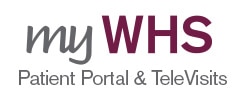You and your family are important to us. In order to provide you with the best possible treatment, your care will be managed by a team of health professionals composed of physicians, nurses, case managers, therapists, dietitians, technicians and other healthcare professionals.
Your nurse will talk with you and your family to determine your care needs and involve you in decisions about your plan of care. Along with your doctor, the nursing staff will check your response to treatments, follow your laboratory studies and other special tests and monitor everything related to your hospital stay.
A major goal of our staff is to help you regain your health and independence as soon as possible. If you are moved to a different unit, your plan of care will continue to be implemented and communicated with other health care team members to ensure that your care, teaching and needs upon discharge are met.
One of the most important aspects of your care will be your preparation for discharge, in order to make a smooth transition from the hospital to your home. Our hospital professionals will work with you and your family to make arrangements for any special discharge needs that you may have.
UPMC Washington’s mission is to provide great patient care, and we envision being the healthcare system of choice for patients, physicians and employees. We take great pride in the care that we provide to patients and families in our community. Because of our commitment to transparency, we would like to share the links to websites of outside organizations that compare our quality and patient safety initiatives to hospitals across the country.
Welcome to UPMC Washington’s Patient Cost Estimator. By entering a small amount of information, you will get an up-to-date estimate of costs (deductible, coinsurance and copay) customized to your health insurance benefit plan and the services you select.
UPMC Washington offers a 10% discount if you pay the estimated amount due in advance of service.
If you have questions, need assistance or cannot locate the procedure or exam you intend to have, please contact the Business Office at (724) 223-3034.
In 2018, the Centers for Medicare and Medicaid Services (CMS) established a requirement that, as of January 1, 2019, hospitals must make available a list of our current standard charges via the Internet in a machine readable format at least annually. A “machine readable format” is a format that can be easily integrated into a computer system or statistical program (e.g., XML, CSV). This could be in the form of the chargemaster (a standard format used by all hospitals) itself or another form of the hospital’s choice, as long as the information is in machine readable format. The agency had not previously required standard hospital charges to be available in a machine readable format, nor had it required that the list be posted on a public-facing website. Instead, hospitals could meet prior guidance by providing charges upon request.
Although we understand CMS’ intent to promote price transparency and we have provided the required list of charges online, we do not feel providing the list of our charges gives meaningful information to our community as most payments by insurers and patients are not based on the actual charge but instead on contracted rates or adjusted charges. We are still providing a payment estimation tool on our website that may help you better understand your payment responsibility for our most common procedures and tests {Patient Cost Estimator}. Hospital payments are very complex and we are attempting to provide information that you find useful. In our opinion, providing a list of charges as required by CMS is missing the mark which creates more confusion for our patients.
CMS continues to collect information and we expect further clarification from CMS in the next 12 – 18 months. In the meantime, we will continue to work towards providing meaningful price transparency information that also meets federal regulations.
UPMC Washington is committed to providing emergency and other medically necessary services to patients regardless of their ability to pay. It is part of our mission to work with patients to assist them in meeting their financial obligations for services rendered by our health system.
What individuals qualify for financial assistance?
UPMC Washington may be able to offer financial assistance to patients:
- With no medical insurance or limited medical insurance policies;
- Who are not eligible for Medicare or Medicaid;
- Who are United States citizens; or
- Who document financial need.
What assistance is available?
Patients who apply for financial assistance and meet the requisite eligibility criteria may be eligible for free care if their family income is 200% of the Federal Poverty Guidelines or below, or discounted care if family income does not exceed 400% of the Federal Poverty Guidelines. It is the policy of UPMC Washington that no one eligible for financial assistance will be charged more for emergency or other medically necessary care than amounts generally billed to patients receiving Medicare, Medicaid or other private health insurance for such care.
Where can I obtain UPMC Washington’s Financial Assistance Policy?
For a copy of UPMC Washington’s complete Financial Assistance Policy, click the links below. The Financial Assistance Policy applies to hospital services received at UPMC Washington facilities (The UPMC Washington Hospital and UPMC Greene).
What are the income guidelines for financial assistance?
The following table shows the 2024 Federal Poverty Level Guidelines for the Contiguous States (Annual Income)
| Household/Family Size | 100% | 133% | 138% | 150% | 200% | 300% | 400% |
|---|---|---|---|---|---|---|---|
| 1 | $15,060 | $20,030 | $20,783 | $22,590 | $30,120 | $45,180 | $60,240 |
| 2 | $20,440 | $27,185 | $28,207 | $30,660 | $40,880 | $61,320 | $81,760 |
| 3 | $25,820 | $34,341 | $35,632 | $38,730 | $51,640 | $77,460 | $103,280 |
| 4 | $31,200 | $41,496 | $43,056 | $46,800 | $62,400 | $93,600 | $124,800 |
| 5 | $36,580 | $48,651 | $50,480 | $54,870 | $73,160 | $109,740 | $146,320 |
| 6 | $41,960 | $55,807 | $57,905 | $62,940 | $83,920 | $125,880 | $167,840 |
| 7 | $47,340 | $62,962 | $65,329 | $71,010 | $94,680 | $142,020 | $189,360 |
| 8 | $52,720 | $70,118 | $72,754 | $79,080 | $105,440 | $158,160 | $210,880 |
| Each person over 8, add | $5,380 | $7,155.40 | $7,424.40 | $8,070 | $10,760 | $16,140 | $21,520 |
What services are eligible for financial assistance?
Emergency and other medically necessary (non-elective) services provided by UPMC Washington Hospital, UPMC Greene and UPMC Family Medicine Residency Program.
What services are not eligible for financial assistance?
Financial assistance does not cover Cosmetic Surgery, Outpatient Pharmacy, non-approved by insurance Cardiac and Pulmonary Rehabilitation Maintenance Programs, non-approved by insurance Bariatric/Weight Loss Surgery, non-medically necessary services to include dental procedures and tubal reversals. Any other discounted services provided under a separate agreement or contract.
How do I apply for financial assistance?
To apply for financial assistance, patients must complete and submit the financial assistance application with the required proofs of income. You can download the application, labeled Charity Care, below.
How do I obtain more information about financial assistance, copies of financial assistance documents, or help with the financial assistance process?
UPMC Washington is here to help you by phone, mail, online or in person:
Telephone: Business Office (724) 223-3034 Financial Counselor (724) 229-1752
Hospital Physical Locations / Mailing Addresses:
| UPMC Washington Hospital 155 Wilson Avenue Washington, PA 15301 Attn: Business Office |
UPMC Greene 350 Bonar Avenue Waynesburg, PA 15370 Attn: Business Office |
Files for download:
Your rights and Protections Against Surprise Medical Bills
When you get emergency care or are treated by an out-of-network provider at an in-network hospital or ambulatory surgical center, you are protected from balance billing. In these cases, you shouldn’t be charged more than you plan’s copayments, coinsurance and/or deductible.
What is “balance billing” (sometimes called “surprise billing”)?
When you see a doctor or other health care provider, you may owe certain out-of-pocket costs, like a copayment, coinsurance or deductible. You may have additional costs or have to pay the entire bill if you see a provider or visit a health care facility that isn’t in your plan’s network.
“Out-of-network” means providers and facilities that haven’t signed a contract with your health plan to provide services. Out-of-network providers may be allowed to bill you for the difference between what your plan pays and the full amount charged for a service. This is called “balance billing.” This amount is likely more than in-network costs for the same service and might not count toward your plan’s deductible or annual out-of-pocket limit.
“Surprise billing” is an unexpected balance bill. This can happen when you can’t control who is involved in your care—like when you have an emergency or when you schedule a visit at an in-network facility but are unexpectedly treated by an out-of-network provider. Surprise medical bills could cost thousands of dollars depending on the procedure or service.
You’re protected from balance billing for:
Emergency services
If you have an emergency medical condition and get emergency services from an out-of-network provider or facility, the most they can bill you for is your plan’s in-network cost-sharing amount (such as copayments, coinsurance and deductibles). You can’t be balance billed for these emergency services. This includes services you may get after you’re in stable condition, unless you give written consent and give up your protections not to be balance billed for these post-stabilization services.
Certain services at an in-network hospital or ambulatory surgery center
When you get services from an in-network hospital or ambulatory surgery center, certain providers there may be out-of-network. In these cases, the most those providers can bill you for is your plan’s in-network cost-sharing amount. This applies to emergency medicine, anesthesia, pathology, radiology, laboratory, neonatology, assistant surgeons, hospitalist, or intensivist services. These providers can’t balance bill you and may not ask you to give up your protections not to be balance billed.
If you get other types of services at these in-network facilities, out-of-network providers can’t balance bill you, unless you give written consent and give up your protections.
You’re never required to give up your protections from balance billing. You also aren’t required to get out-of-network care. You can choose a provider or facility in your plan’s network.
When balance billing isn’t allowed, you also have these protections:
- You’re only responsible for paying your share of the cost (like the copayments, coinsurance, and deductible that you would pay if the provider or facility was in-network). Your health plan will pay any additional costs to the out-of-network providers and facilities directly.
- Generally, your health plan must:
- Cover emergency services without requiring you to get an approval for services in advance (also known as “prior authorization”).
- Cover emergency services by out-of-network providers.
- Base what you owe the provider or facility (cost-sharing) on what it would pay an in-network provider or facility and show that amount in your explanation of benefits.
- Count any amount you pay for emergency services or out-of-network services toward your in-network deductible and out-of-pocket limit.
If you think you’ve been wrongly billed, you can contact the No Surprises Helpdesk for information and complaints at 1(800) 985-3059.
For additional information about your rights under federal law, visit the website at www.cms.gov/nosurprises/consumers .


